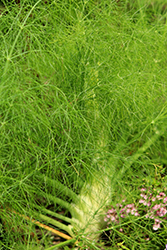Fri & Sat 8am - 8pm
Sun 8am - 7pm
Anytown, USA 12345
fax: 261.787.0463
e-mail: info@successgc.com


Plant Finder

Height: 3 feet
Spacing: 18 inches
Sunlight:
![]()
Hardiness Zone: (annual)
Description:
Fast and vigorous, this wonderful variety produces large, firm bulbous bases with celery like stalks and fine fern like foliage; strong anise flavor adds a beautiful touch to salads or superb roasted or charred; good tolerance to tip burning and bolting
Edible Qualities
Orion Fennel is an annual vegetable plant that is typically grown for its edible qualities. The entire above-ground parts of the plant are edible, and are typically harvested when mature. The edible parts have a savory taste with a crunchy texture and a pleasant fragrance.
The plant is most often used in the following ways:
- Fresh Eating
- Eating When Cooked/Prepared
- Cooking
- Baking
- Pickling
Planting & Growing
Orion Fennel will grow to be about 3 feet tall at maturity, with a spread of 24 inches. When planted in rows, individual plants should be spaced approximately 18 inches apart. This vegetable plant is an annual, which means that it will grow for one season in your garden and then die after producing a crop.
This plant is typically grown in a designated vegetable garden. It should only be grown in full sunlight. It does best in average to evenly moist conditions, but will not tolerate standing water. It is not particular as to soil type or pH. It is somewhat tolerant of urban pollution. This is a selected variety of a species not originally from North America, and it is considered by many to be an heirloom variety.
Orion Fennel is a good choice for the vegetable garden, but it is also well-suited for use in outdoor pots and containers. With its upright habit of growth, it is best suited for use as a 'thriller' in the 'spiller-thriller-filler' container combination; plant it near the center of the pot, surrounded by smaller plants and those that spill over the edges. It is even sizeable enough that it can be grown alone in a suitable container. Note that when growing plants in outdoor containers and baskets, they may require more frequent waterings than they would in the yard or garden.
